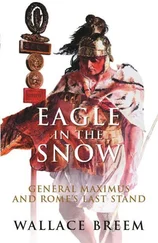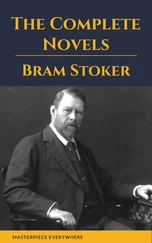“I am a friend of Rome,” he said. It was an expression he repeated at intervals as though to convince himself as much as me.
“That I know,” I said. “That is why I take your young men into my service and pay subsidies (it was the polite word for bribery) to you so that you may help your people who are poor.”
“What can I do for you?”
“I want nothing this time but information.”
“I will do my best to help you.” He looked relieved.
“Is the king Gunderic still in the land of the Alemanni?”
He hesitated for a moment. “Yes. His people wintered there.”
“All of them?” I asked sharply. “Or only those who fought under the shield of Radagaisus?”
“I do not know how many.”
“And what of the Quadi and the Asding Vandals whom my general and friend, Stilicho, drove from Italia? Have they gone to their own people?”
“It is as you say. They have joined with their own kind.”
He smiled and plucked at his beard. There was a stir among the men about him but though I looked at them hard there was little enough in their faces to tell what they thought. A slim arm that was about to lower a jug of beer onto the table between us shook slightly, so that a few spots spattered the roughly scraped boards. I looked up at the blue eyes of a tall blonde girl who stood beside me. Her hair lay in thick plaits upon her breast; about her neck she wore a silver torque, elaborately decorated. I judged her to be the king’s eldest daughter. She was certainly a fine looking girl. She smiled at me, wiped the spots with the sleeve of her gown, said something to her father (it sounded like an apology) and then withdrew.
The king said, “If you have time you must come hunting. I can show you some fine sport.”
“I would like that,” I said. “It has been a long winter.”
Quintus said, “I drink to your health. You have fine sons and beautiful daughters.”
“Indeed, yes. Four daughters, but six sons, all old enough to carry their axe, save for this cub here.” He dropped his hand onto the shoulders of a small boy who stood at his side. There was a look of great pride in his eyes. “You have sons, too, who will be men now with sons of their own, no doubt.”
Quintus glanced at me. “No,” he said. “We have no sons.”
The king looked troubled. “It is a fine thing to have sons who will bear one’s name. But sometimes it is the will of God that it shall not be so.” There was silence. Neither of us spoke. Then he said regretfully, “I am indeed sorry to hear you say that.”
I said, “Our camp was attacked last autumn. You heard of the matter, no doubt. There were Alans, Quadi and Siling Vandals among the dead. None of these belong to the Suevi.” By Suevi I meant those tribes whose lands marched with the frontiers of Rome along the Rhenus and the Danubius.
He shrugged his shoulders. “We have peoples of other tribes within our own. It signifies little.”
I said, “King Guntiarus, you know and I know that an attempt will be made to cross the river. If those who make the attempt try to march through your lands first, I shall expect you to fight and defend it. If you do, we will aid you. But if the crossing is made outside your frontier, I want you to keep your sword hand empty, unless I ask for your help. You do not want war with the Alemanni and I want them to have no excuse for attacking you. Help me in this matter and I promise that next year’s subsidies will be twice the normal size.”
“What if they try to take our salt again?” said the king’s eldest son in a clear, high voice. “Are we to give it to them as though we were slaves?”
“Neither behave like slaves nor like foolish women who throw cooking pots in a temper. Behave like men. A cool hand is better than a hot one.”
The king said hastily, “I understand. I am a friend of Rome. But why are my people on your bank not allowed to cross the river? It is causing much talk and much difficulty.”
“Because I do not want offence to be given. If I treat your people differently from the Franks and the Alemanni it will make for difficulties—for both of us.” It was a lie, and he knew it was a lie, but there was truth in what I said—a little anyway—and he had to accept it. Thirty years before, the Alemanni had put seventy thousand men into the field against the emperor Gratian. They were too strong to quarrel with without a reason.
He said, “I am a man of peace. Soon I celebrate the marriage of my eldest daughter to Marcomir of the Franks. It is a good match and will help to bind us all together. There will be a great feast. You and your generals must come and honour my house with your presence. I am, after all, a friend of Rome.”
“We shall be happy to come if our duties permit.”
He slapped his thigh then. “I promised you one of my daughters,” he said with a chuckle. “I had almost forgotten. I remember, I was very drunk at the time.”
There was a roar of laughter from the chiefs about the table.
I began to protest. “No, no,” he said. “A promise is a promise. The marriage can take place with the other. It will be a fine double wedding and we shall have a great feast. It will bind the alliance strongly between us.”
I said quickly, “When my wife died I took an oath not to marry again. I cannot foreswear my gods.”
He began to look disgruntled. He said, “You should be a christian like me.”
“But I am not and I cannot change now. It would be wrong for your daughter to marry a pagan and one who is old enough to be her father.”
He chuckled. “But that is what we need at our age.” He turned to Quintus and grinned.
I said hastily, “My friend is also a pagan.” I looked desperately at my cavalry commander for inspiration.
Quintus said, “Our senior tribune, Lucillius, is a fine young man, and of good family. It would be a good match and the girl would like him. He is—very active. He is also a christian.”
“Which girl?” I muttered under my breath.
“Excellent. It is agreed.” Guntiarus roared his delight and the pact was sealed in wine.
As we undressed that night in the guest-house, I said, “And who is going to tell the unsuspecting Lucillius?”
Quintus yawned. “You are,” he said. “It is your command.”
On our way out of his berg we passed a line of poles upon which the heads of enemies and criminals shrivelled in the sun.
“Peace,” said Quintus, looking at them curiously. “Only the dead have that.”
We rode along the east bank, following a twisting track that rose and fell between the wooded hills and the dark valleys in between. At Marcomir’s berg the young chief came out to meet us, riding bare-back and carrying a hunting bow in his hand. I congratulated him on his coming marriage to the king’s daughter.
“She is a fine girl,” he said. “My father would have been pleased.”
“When will it take place?”
“After the harvest.” He grinned suddenly. “That is a good time for feasting.”
I said, “Let us hope that it will be so.” I leaned over my horse’s neck. “Marcomir, I am sending patrols to hold your side of the river between the Moenus and the foothills. If they are driven in they have orders to light beacons as a warning before they retreat.”
“And what do you want me to do?” he asked gravely.
“Nothing, until I tell you. Do not throw one spear, nor fire a single arrow in anger without my word. I will tell you when is the time to strike.”
He said, “I understand.” He smiled. There was a pause and then he said quietly, “Can you hold them if they attack you with all their war-bands?”
“Yes,” I said. “I can. They have never met cavalry before.”
“But we ride,” he protested. He was half angry, half laughing. “We use horses in war. A little anyway.”
Читать дальше












